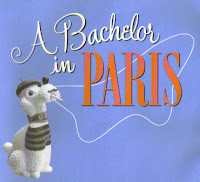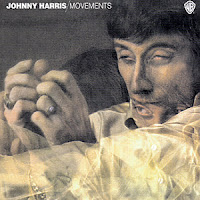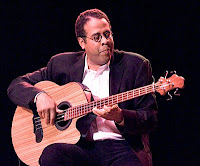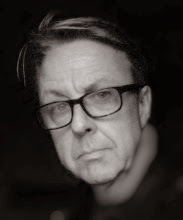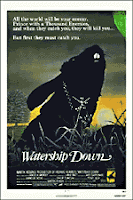 At a time when big action blockbusters like Star Wars and Superman were packing them in at the cinema, a modest cartoon about rabbits trying to set up a new warren was perhaps not considered a safe bet. However, Martin Rosen's adaptation of Richard Adams' novel Watership Down, after a slow start became the sixth most popular film of 1979 at the British box office.
At a time when big action blockbusters like Star Wars and Superman were packing them in at the cinema, a modest cartoon about rabbits trying to set up a new warren was perhaps not considered a safe bet. However, Martin Rosen's adaptation of Richard Adams' novel Watership Down, after a slow start became the sixth most popular film of 1979 at the British box office.Whilst the animation would hardly give Disney any sleepless nights, the watercolour backgrounds were beautiful and the voice work of John Hurt, Richard Briers, Harry Andrews, Simon Cadell, Nigel Hawthorne, Roy Kinnear and in his last film role, Zero Mostel was inspired.
Some of the film's success may have been down to the popularity of Art Garfunkel's British No. 1 hit,
"Bright Eyes", written by
Womble-meister Mike Batt, but with a different arrangement to the film version. As a result, many parents expecting a heart warming family adventure with some cute flopsy bunnies, had to escort their howling infants from the cinema when they discovered the darker subject matter contained in
Watership Down. Some years later a more child friendly TV animated series was made which bore little relation to the movie other than the name.
Sir Malcom Williamson was originally slated to compose the soundtrack, but due to illness, was only able to submit six minutes of music that comprise the prelude and opening of the movie. Enter Angela Morley to complete the exquisite score for
Watership Down.
Although the name, Angela Morley may have been new to some, the musical talent however was well established. Angela Morley's original birth name was Wally Stott, whose composer credits include the top BBC comedy shows
Hancock’s Half Hour and
The Goon Show. Film credits include
The Looking Glass War,
When Eight Bells Toll, Captain Nemo and the Underwater City as well as assisting John Williams with the orchestration of his scores for
Star Wars,
Superman and
The Empire Strikes Back. Morley's pastoral score for
Watership Down recalls Ralph Vaughan Williams with its evocation of the English countryside, particularly the Berkshire Downs - the location of the real Watership Down. The more pacier and dramatic cues have a definite John Williams feel to them, which sheds an interesting light on Morley's work with Williams.
So don't let Art Garfunkel's sacharine, tear terker of a single cloud your judgement,
Watership Down is a great and unfairly overlooked soundtrack.
 Johnny Gregory's TV Thriller Themes is one of those fabulously fortuitous finds. It's a classy collection of US and UK Crime Jazz from the mid -1960's
Johnny Gregory's TV Thriller Themes is one of those fabulously fortuitous finds. It's a classy collection of US and UK Crime Jazz from the mid -1960's


